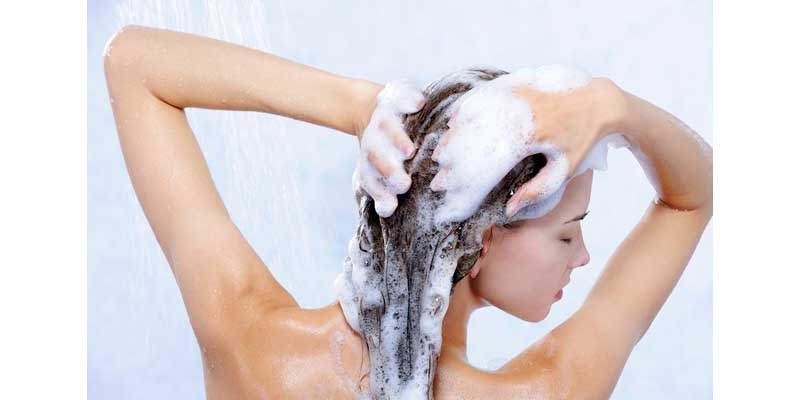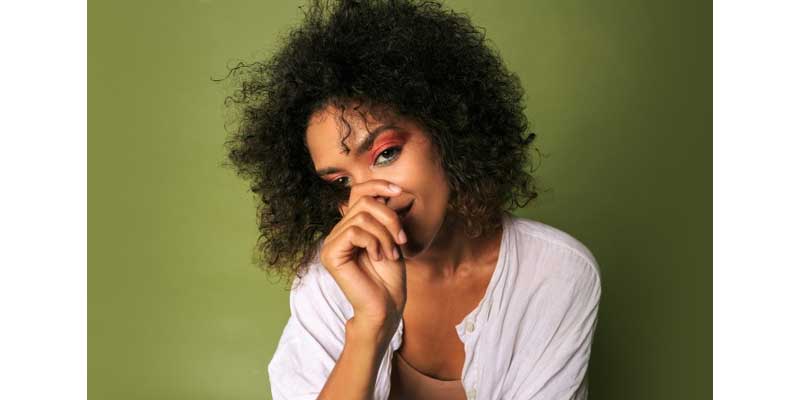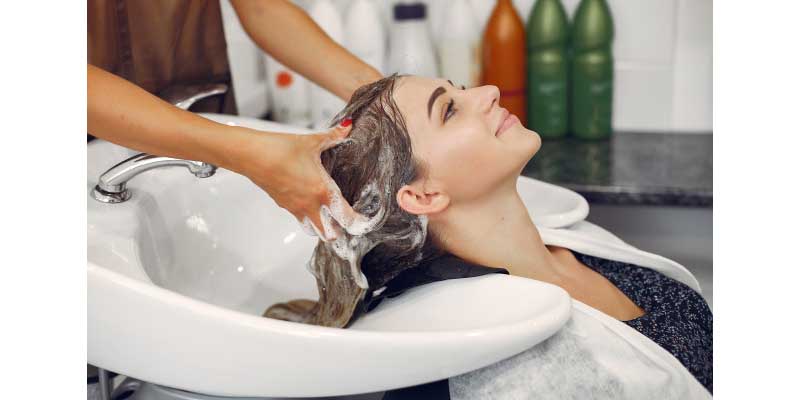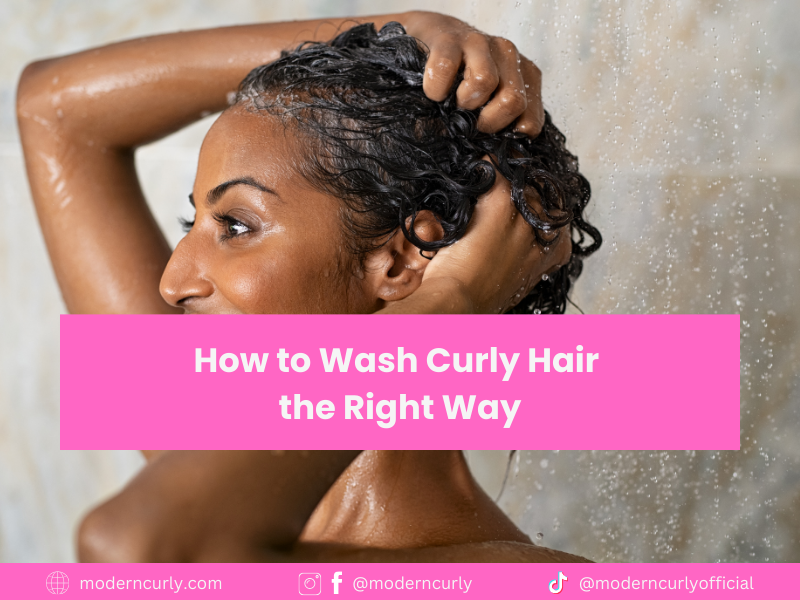Struggling with caring for your curly hair? You’re not alone. Properly washing curly hair involves a few specific steps to keep it healthy and defined.
Curly hair requires gentle care to maintain its natural shape. Start by using a sulfate-free shampoo to avoid stripping away essential oils. Conditioners specifically for curly hair help lock in moisture and reduce frizz.
In addition to shampoo and conditioner, detangling while your hair is wet is key. Use a wide-tooth comb or your fingers. This prevents breakage and maintains the natural pattern of your curls.
Understanding the Importance of Proper Hair Washing for Curly Hair
Curly hair needs special care. Washing it correctly helps keep it healthy and strong. One key to managing curly hair is knowing how and when to wash it.
1. Moisture Retention
Curly hair tends to be dry. Over-washing can strip the natural oils. This makes your hair frizzy and brittle. Use sulfate-free shampoos to keep moisture in your hair. Water temperature matters too. Warm water helps open the hair cuticle. This lets the shampoo clean deeply. However, after shampooing – it’s better to wash with cold water to close the cuticle.
2. Gentle Handling
Be gentle when washing your hair. Curly hair is fragile and can break easily. Avoid rubbing your scalp harshly. Instead, use your fingertips to massage the scalp. This helps improve blood flow without damaging your hair.
3. Product Choices
Choosing the right products is crucial. Look for shampoos and conditioners made for curly hair. Avoid products with alcohol or heavy fragrances. These can dry out your hair. Use a conditioner after every wash to replenish moisture.
4. Washing Frequency
Do not wash your curly hair every day. About 2-3 times a week is often enough. This prevents your hair from drying out too much. In between washes, you can refresh your curls with water or a leave-in conditioner.
| Do | Don’t |
| Use sulfate-free shampoo | Wash daily |
| Condition after washing | Rinse with very hot water |
| Be gentle | Use heavy fragrances |
| Wash 2-3 times a week | Rub hair harshly |
Remember, proper washing techniques make a big difference. With the right care, your curls will stay beautiful and healthy. Read more about caring for curly hair in Hair Rules!.
Frequency Guidelines For Curly Hair
Washing curly hair requires a balance between keeping it clean and maintaining its natural oils. This guide provides detailed information about how often and how to wash curly hair, what to do between washes, and signs to watch for.
How Often Should You Wash Curly Hair?
Curly hair tends to be drier than straight hair because the oils from the scalp take longer to travel down the hair shaft. Because of this, washing it too frequently can strip these natural oils, leading to dryness and frizz. Generally, it is recommended to wash curly hair 1-2 times a week. This frequency helps to keep the hair clean while maintaining moisture. However, your specific hair type and lifestyle can influence how often to wash curly hair.
Creating The Right Washing Schedule For You
Finding the right washing schedule involves understanding your hair’s needs and your daily routine. If you lead an active lifestyle or live in a humid climate, you may need to wash more frequently. On the other hand, less active individuals or those in cooler climates might get away with washing less often. Testing different schedules and paying attention to how your hair responds will help you find the most suitable routine. Using a hair diary to note the condition of your hair after each wash can be beneficial.
What To Do Between Washes?
Between washes, it’s essential to maintain your hair’s health and appearance. Using dry shampoo can absorb excess oil and add volume. Spritzing your hair with water or a leave-in conditioner helps to refresh curls and add moisture. Gentle daily detangling with your fingers or a wide-tooth comb can prevent knots. Additionally, wearing protective hairstyles like braids or buns can reduce the need for frequent washing.
Finding The Right Balance: Determining The Optimal Washing Schedule
Determining the optimal washing schedule requires balancing cleanliness and maintaining natural oils. Pay attention to your hair’s condition. If it feels dry, you might be washing too often. If it feels greasy or itchy, you might need to wash more frequently. Season changes can also affect how often you need to wash. For instance, you may find that your hair needs washing more often in the summer due to sweat and humidity.
Signs Your Hair Needs Washing
Recognizing when your hair needs washing can help you adjust your routine. Signs include a greasy scalp, lack of volume, and an itchy or flaky scalp. If your hair feels heavy or looks dull, it’s likely time for a wash. Additionally, if your curls are not holding their shape or you notice an unpleasant smell, it may be another indicator.
Signs You’re Washing Your Hair Too Often
Washing your hair too often can lead to dryness and damage. Signs include a dry or itchy scalp, frizzy hair, and brittle or broken strands. If your hair feels rough or you’re experiencing more tangles than usual, you might be stripping away essential oils. Reducing washing frequency and using a hydrating conditioner can help restore moisture.
Adjusting Washing Frequency For Personal Needs
Everyone’s hair is different, so it’s important to adapt your washing routine to your specific needs. If you have fine curls, you might need to wash more frequently than someone with coarse curls. During times of stress or lifestyle changes, such as starting a new exercise routine, your washing frequency might also need to change. Listening to your hair and being flexible with your routine ensures it stays healthy and looking its best.
Tips On Choosing The Right Shampoo For Curly Hair
Choosing the right shampoo for curly hair is essential to maintaining its health and natural beauty. Understanding what ingredients to look for and which to avoid will help you make an informed choice.
1. Ingredients To Look For
When selecting a shampoo for curly hair, look for moisturizing ingredients like glycerin and shea butter. These help keep your curls hydrated.
Aloe vera is another beneficial ingredient—it helps soothe the scalp and offers antibacterial properties. Natural oils such as coconut oil and argan oil are great as they nourish and give your curls shine and softness.
Proteins like keratin and silk are excellent for strengthening your hair. Use shampoos containing these ingredients to keep your curls strong and less prone to breakage.
2. Ingredients To Avoid
Avoid shampoos containing sulfates, such as sodium lauryl sulfate or sodium laureth sulfate. These can strip your hair of its natural oils, leaving it dry and frizzy.
Stay away from parabens as well. Although they extend the shelf life of products, they can cause scalp irritation. Silicones like dimethicone and cyclomethicone can weigh hair down and build up over time, making it difficult to wash out.
It’s also wise to avoid alcohol as it can be very drying. Look for shampoos that are labeled as “alcohol-free.”
3. Recommended Shampoos For Curly Hair
It’s actually trial and error. There is no one product that could be best for all hair. However, you might want to read out article on which ingredients to avoid.
How Should You Wash Your Hair?
Washing curly hair involves several important steps. It’s essential to use suitable products and techniques to keep curls healthy, hydrated, and frizz-free. These are steps by steps guide:
Step 1: Check Your Water Temperature
Use lukewarm water to wash your curly hair. Hot water can strip natural oils, leaving your hair dry. Cool water helps to close the hair cuticle, reducing frizz and adding shine.
If possible, avoid hard water as it can make your hair feel rough.
Step 2: Portion Out The Shampoo

Choose a sulfate-free shampoo designed for curly hair. Sulfates can be harsh and drying. Use a quarter-sized amount, as too much shampoo can strip essential oils.
Distribute the shampoo evenly between your palms to prepare for the next step.
Step 3: Work Through Your Scalp
Focus on your scalp rather than the length of your hair when you apply shampoo. Use your fingertips to gently massage the scalp in circular motions.
This will help to remove build-up and stimulate blood flow without tangling your hair.
Step 4: Cleanse And Finger Comb The Hair

As you cleanse your scalp, allow the shampoo to run through the rest of your hair. Use your fingers to detangle, starting from the ends and working up to the roots.
Do not use a brush or comb at this stage to avoid breakage.
Step 5: Massage As You Rinse
Rinse your scalp thoroughly while gently massaging to ensure all shampoo is washed out. Leaving residue can cause irritation and dryness.
Continue to finger comb your hair while rinsing to keep it detangled.
Step 6: Follow With Conditioner
Apply a generous amount of conditioner to your hair, focusing on the mid-lengths and ends. Avoid applying directly to the scalp.
Look for a conditioner that provides deep hydration and nourishment for your curls.
Step 7: Use A Leave-In Conditioner
After rinsing out your conditioner, apply a leave-in conditioner to damp hair. This adds an extra layer of moisture, which is essential for maintaining the health and shape of your curls.
Distribute the product evenly through your hair, paying close attention to the ends.
Step 8: Dry Your Curls

Opt for air drying whenever possible. Excessive towel drying or blow drying can cause frizz and damage. Use a microfiber towel or an old T-shirt to gently squeeze out excess water.
If you must use a blow dryer, use a diffuser attachment on a low heat setting to protect your curls.
Understanding Curly Hair And Its Unique Needs
Curly hair has specific characteristics that make it different from straight hair. These unique needs must be considered, especially when washing it, to maintain its health and manageability.
Characteristics Of Curly Hair
Curly hair is naturally dry because the oils produced by the scalp take longer to travel down the twists and coils. This type of hair often appears voluminous due to its shape. The curls tend to intertwine, leading to tangling and frizz. You might notice that each curl pattern varies, even on the same head, which adds to the complexity of caring for it. Curly hair also has a unique structure, often appearing thicker but being more fragile and prone to breakage. Addressing these characteristics can lead to better hair care practices.
Challenges Of Washing Curly Hair
Washing curly hair presents several challenges. One of the main issues is retaining moisture. Regular shampoos can strip the hair of its natural oils, leaving it drier and more prone to breakage. Another challenge is detangling, as wet curly hair can become easily knotted. You should use a generous amount of conditioner to help with this process. It’s also recommended to use a wide-toothed comb or your fingers to gently work through the tangles while the hair is still wet and slippery. Additionally, washing too frequently can exacerbate dryness and lead to other scalp issues.
Impact Of Washing Frequency On Curly Hair Health
Washing frequency can significantly impact curly hair’s health. Washing too often can remove essential oils, causing dryness and brittleness. On the other hand, not washing enough can lead to product buildup and an itchy scalp. The ideal washing routine depends on your hair type and personal preferences. For some, washing once a week is sufficient. Others might find that washing every two weeks works best. Incorporating co-washing, where you use conditioner instead of shampoo, can also help maintain moisture. Pay attention to your hair’s response and adjust accordingly. It’s essential to find a balance that keeps your hair clean but not overly dry.
Factors To Consider When Determining Washing Frequency
When deciding how often to wash curly hair, you must think about your hair type, scalp condition, daily activities, and the environment you’re in. Each factor plays a role in keeping your curls healthy and looking nice.
1. Hair Type And Texture

Curly hair varies a lot. The more curly or coily your hair is, the less often you might need to wash it. Curls can sometimes get dry because the natural oils from your scalp take longer to spread down the curly strands. This is why people with tight curls or coils might benefit from washing less often, perhaps once a week.
For looser curls or wavy hair, washing might be needed every 3-4 days. Straight or loose waves tend to get oily faster, which can affect how often you wash. Understanding your curl pattern helps in determining the best schedule for washing, ensuring your hair stays hydrated and clean.
2. Scalp Condition
The state of your scalp matters a lot. If your scalp is oily, you might need to wash your hair more frequently, maybe every 2-3 days. This would help in managing oil production and keeping your scalp feeling fresh. For a dry or sensitive scalp, less frequent washing is beneficial.
Consider using a gentle shampoo if your scalp gets dry or irritated easily. A healthy scalp encourages hair growth and keeps your curls bouncy. If you experience issues like dandruff, selecting the right washing routine and products is key.
3. Lifestyle And Daily Activities
Your daily routine affects how often you should wash your hair. If you exercise regularly or engage in activities causing you to sweat a lot, you might need to wash your hair more often. Sweat and dirt can build up on your scalp and make it feel greasy.
People working in environments with dust, pollutants, or strong smells also might need to wash their hair more frequently. If you have a less active lifestyle, washing less often could work well for you. Tailor your washing schedule based on how much you expose your hair to sweat and environmental particles.
4. Environmental Factors
The climate and environment where you live influence washing frequency. In humid areas, you may need to wash more often to manage frizz and sweat. Curly hair tends to frizz in humidity, so regular washing with a moisture-balancing shampoo might be necessary.
In dry or cold climates, washing less often helps maintain moisture levels in your hair. The cold air can take moisture away, so maintaining hydration is critical. Traveling frequently between climates may require adjusting your washing routine often to keep your curls in the best condition.
The Science Behind Curly Hair Washing
Curly hair needs specific care to stay healthy and manageable. Understanding how natural oils, shampoos, and water temperature affect curly hair is crucial for proper washing.
1. Hair And Scalp’s Natural Oils

Your scalp produces natural oils, called sebum, which help to condition the hair. These oils travel down the hair shaft, but curly hair often prevents them from reaching the ends. This can cause curly hair to become dry and prone to breakage.
Infrequent washing allows these natural oils to build up and nourish your hair. Overwashing can strip these oils away, leading to dryness. Using gentle techniques, like massaging the scalp, helps distribute these oils more evenly. Try pre-wash treatments with natural oils like coconut or olive oil to add extra moisture.
2. Role Of Shampoos And Cleansers
Shampoos clean the hair by removing dirt, oils, and product buildup. For curly hair, it’s essential to choose sulfate-free shampoos. Sulfates can be too harsh, stripping away essential moisture and natural oils.
Many prefer co-washing, using conditioner instead of shampoo. Conditioners are milder and can cleanse while providing hydration. Look for products with nourishing ingredients like shea butter or argan oil. Avoid formulas with alcohol, which can cause dryness and frizz.
3. Impact Of Water Temperature And Pressure
Water temperature plays a significant role in washing curly hair. Hot water can strip natural oils and dry out your scalp. Washing your hair with lukewarm water helps to retain moisture and keeps your hair healthy.
Water pressure also matters. High pressure can tangle and damage curly hair. Instead, use gentle water flow to minimize frizz and breakage. Rinse with cool water at the end of your wash to help seal the hair cuticle, locking in moisture and enhancing shine.
Washing curly hair with care ensures it remains hydrated, soft, and manageable. You can maintain your curls’ health and beauty by understanding your hair’s unique needs.
Personalizing Your Curly Hair Washing Routine
To effectively manage curly hair, you need to focus on a routine tailored to your specific hair type. This involves selecting the right products and methods to achieve healthier, more defined curls without unnecessary frizz.
1. Creating A Customized Hair Care Plan

Begin by identifying your hair texture and the type of curls you have. This helps in choosing the right products, such as sulfate-free shampoos or moisturizing conditioners. For example, if you have 3B curls, you’ll benefit from a leave-in conditioner that enhances curl definition. Use a deep conditioner once a week to maintain moisture.
Set a washing schedule based on your hair’s needs. Washing too often can strip natural oils, leading to dryness. Typically, washing every 3-4 days works well for most curl types. Adjust this schedule to suit your lifestyle and hair health. Another tip is to use lukewarm water to prevent drying out your hair and scalp.
Keep track of how different products and routines affect your hair. You could maintain a hair journal, noting down the effects of each product or technique. Over time, this will help in identifying what works best for you and adjusting your routine accordingly.
2. Listening To Your Hair’s Needs
Pay close attention to how your hair responds to different treatments and environmental changes. If your curls seem dry or frizzy, they might need more hydration. In humid weather, consider using anti-humidity products to keep your hair manageable and frizz-free.
Watch for changes in your hair’s texture or behavior, which can indicate that it needs a different approach. If your curls start to look limp or lose their bounce, they might benefit from a protein treatment.
It’s essential to be flexible with your routine. Not every day is the same, and your hair’s needs can change. If you notice your scalp getting oily faster than usual, adjust by washing more frequently or switching to a lighter conditioner.
By staying observant and responsive, you can continuously refine your hair care plan to keep your curls healthy and vibrant.
Conclusion: Embrace Your Natural Hair Care Routine
Caring for curly hair takes time and effort, but the rewards are worth it. With the right methods, products, and mindset, you can enjoy healthy, beautiful curls. Start by using a gentle shampoo. Products with sulfates can strip moisture from your hair, making it dry and prone to breakage. Instead, use a sulfate-free shampoo to keep your curls hydrated. Conditioning is crucial. Apply a deep conditioner regularly to nourish your curls and keep them soft. Detangling should be done with a wide-tooth comb or fingers to avoid breakage.
Styling products matter. Look for those that add moisture and define curls without weighing them down. A leave-in conditioner can help manage frizz and add shine. Drying techniques play a role too. Patting your hair dry with a microfiber towel or cotton T-shirt reduces frizz. Air drying or diffusing on low heat helps maintain your curl pattern.
Embracing your natural curly hair care routine is empowering. It allows you to honor your hair’s unique texture and look its best without forcing it into styles that can cause damage. Acceptance is key. A natural routine can save time and money. Once you find products and methods that work for your hair, stick to them. Consistency makes it easier to manage your curls and keep them healthy.
Celebrate the journey. Enjoy discovering what makes your curls thrive. Each improvement builds confidence in your natural beauty. Small wins, like fewer tangles or more defined curls, are steps towards luscious locks. Listen to your hair. Pay attention to how it responds to different care techniques and products. Adjust accordingly. A personalized approach ensures your hair gets exactly what it needs.

